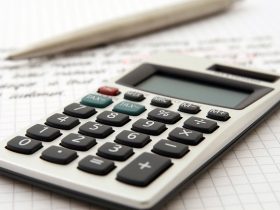Whether saving for retirement, investing for a large purchase or simply paying off debt, a financial plan can make the process much more manageable.
People are much more likely to succeed if they have clear goals they’re working towards. And they’re also ten times more likely to achieve those goals if they have a plan that gives them direction.
Defining Your Goals
One of the most crucial stages you can take in financial planning is defining your goals. It gives you a clear picture of your financial future and simplifies choices to help you achieve your goals.
You can find a financial advisor to help you to choose from short-term, mid-term, or long-term goals. Short-term objectives, like paying off debt or saving for a vacation, usually take less than a year.
In addition, you can set mid-term goals that require more time and attention. These goals should not take longer than five years to achieve, such as purchasing a home or saving for retirement.
When you focus on goals that reflect your priorities, you’re more likely to stick to your budget and reduce expenses that don’t contribute to reaching them. This will help you stay on track to reach your goals, even during tough times. It will also help you feel more confident in your decision-making.
Creating an Emergency Fund
Building an emergency fund is one of the most critical steps in your financial planning. This will protect you from unexpected expenses and help prevent financial crises from becoming more significant.
A good starting point is to create a budget that includes all your essential monthly costs, including rent or mortgage payments and grocery bills. You may also have a category for discretionary spending.
Once you have your budget in place, it’s time to start setting money aside each month. You can make this easier by establishing a specific amount to automatically transfer from your checking account to your emergency savings version each month.
The size of your emergency fund will depend on your lifestyle, income and family situation. Still, saving three to six months’ worth of your expenses is generally recommended. Using a high-yield savings account can help you reach this goal more quickly. It will also give you easy access to your funds if needed.
Investing
Investing is a long-term strategy to create wealth, beat inflation and save for future goals. It can help you achieve your financial goals, such as purchasing a home, paying for your children’s education, or starting your own business.
You can invest by setting up a savings account or building a pension. But to reap the full benefits of compounding and growth, you must invest your money in investment vehicles like stocks, bonds or property.
Investing in the stock market can generate a higher return than cash, but it comes with greater risk. So you should only start investing if your immediate finances are in order and you are comfortable with a bit of trouble.
Monitoring Your Funds
After establishing your financial plan, you should also monitor your funds regularly. This will allow you to see whether your goals are being met and if you are on track to achieve them.
Moreover, monitoring your funds can help you save money in the long run. For example, you can avoid paying costly overdraft fees if you know your balance at any given time.
If you’re unsure how to monitor your finances, a professional planner can help. They can review your progress and make recommendations to keep you on track toward your goals.
A budgeting app is a great way to monitor your funds and ensure you’re on track to reach your goals. Many of these apps are connected to your bank accounts, which gives you a complete picture of all your financial activity. You can then use this information to create your monthly savings plan and track your progress.









